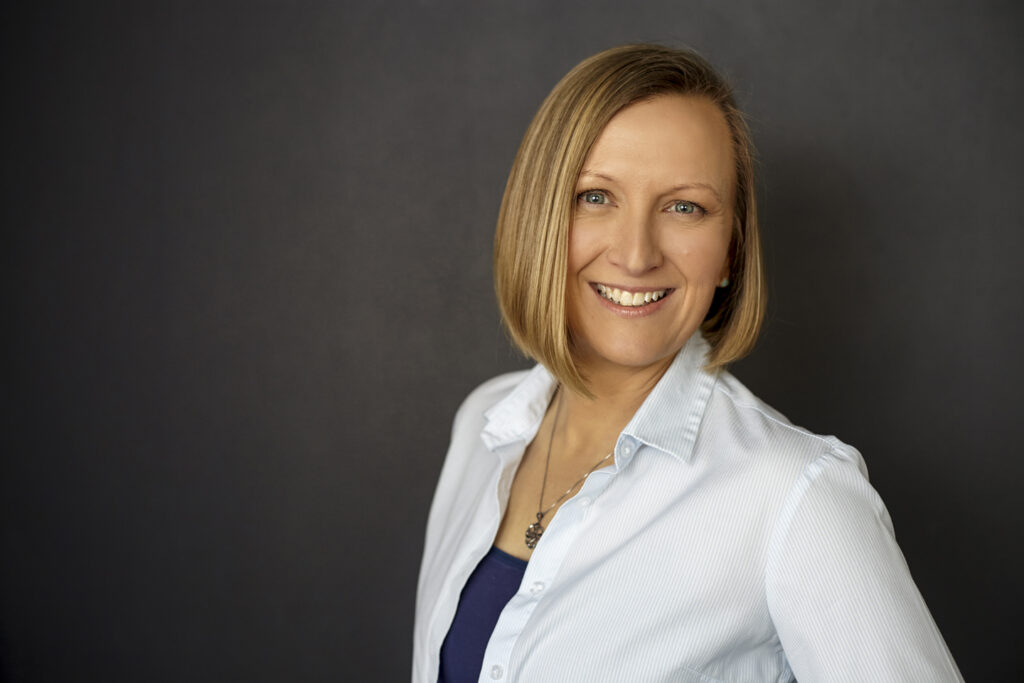What signs of leadership do you look for from staff?
I was interested in what signs of leadership they look for in their staff – whether at the recruitment stage or when considering people for promotion.

The answers are interesting. They include some of the traditional things we might expect, but also much more rounded and ‘softer skills’.
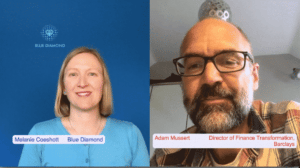
Adam Mussert – When you’re in that position of responsibility, you clearly love it when people around you take initiative. It’s just fantastic when people put their hand up when they say they want to get involved in stuff, so that willingness to take initiative, to take responsibility.
It’s a really powerful marker, I think, of the people who naturally have the confidence to lead, so I think that’s really key.
The other quality that’s always interesting to observe is to what extent they are respected by their peers, people above them, and people below them. And often people’s skill sets in managing those relationships could be quite different in those different dimensions: up, besides, and down. I think leading is about being really good at managing in all those directions, not just managing upwards to the detriment of the relationship with the people beneath them.
So, I think that ability to be respected and to take people with you is another really key marker.
And then there is something around people seeming to thrive in different situations i.e. when they take new things on. Some people can be slightly cowed by it and maybe never volunteered for it in the first place: maybe it was thrust upon them. I think it’s knowing whether someone is thriving in that environment and rising to that challenge or whether they’re doing it because they want desperately to progress and feel that this is a stage they have to go through. I guess it’s about knowing your people and whether it’s the right move for them, the right position for them to be in.
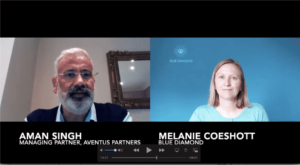
Aman Singh – The first and most important characteristic that I look for is that there is the ability to care. To care for each other, and also to care for the clients. That person must be willing to stand shoulder-to-shoulder with others. It doesn’t matter where they are in their career path. It could be a trainee to some of our senior leaders in the team. They must be willing to sacrifice themselves almost, like someone in the army would do. To be able to stand shoulder-to-shoulder with their colleagues, and help wherever it’s needed. That’s I think the most important sign. There’s also got to be that care for your client and that care would mean that you’re delivering on time, you meet your promises, you take responsibility for your actions, and you’re accountable within your team and outside to the clients themselves.
That characteristic is quite evident as you start to interact with each other. You can actually see who is willing to get up and put their hands up for helping another colleague as and when required, and the ones who would shirk away from that. Those would only focus on their work, get that done, and probably leave and not be able to add that extra bit for their colleagues.
Another thing that I’m looking for, a little bit harder, is grit, and that grit is important because we’re a small organization. I think that it really doesn’t matter the size of the organization, but if you’re gritty, and by gritty, I mean willing to ask yourself when you fall, have that positive mindset to be able to not give up.
We are accountants so we always have lots of challenging battles to deal with on behalf of clients. Internally within our own resources, there is always a need for grit and that, I think, is a defining factor. That develops over a period of time. There’ll be people who’ll fail the exam. As long as they’re willing to work hard and achieve those obstacles, it gives me an indication of whether they are there for the long haul or not. Our profession is quite rigorous and exacting that way, so you need to have that positive mindset and grit in you to succeed in our profession.
Finally, I think we would also be aware someone is willing to learn. That love for knowledge, because in our profession we need to continuously learn, whether it’s the tax rules or the changes that are coming in the auditing environment. Every year there’re new rules that need to be followed. If you’re not willing to or don’t have a love for knowledge, you can’t really progress in your profession.
I think all those three things are very, very important, probably equally important, and that’s what I’m looking for within the team.
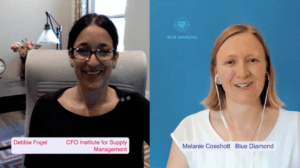
Debbie Fogel – That’s a great question.
What I look for in my only team are some of the same principles.
Definitely that learning mindset, continual learning, and education to solve problems or to learn new technologies or new ways of working with others, depending on the project or the team, or the organization. So, really learning new things.
I definitely think that being optimistic and looking for ways to make things successful is really important. In my team, it’s not okay to blame others. If something doesn’t go right, it’s our job to make sure things go right and see things ahead of time and what is potentially missing or what needs to be done to be successful and really help others be successful. So, having a can-do attitude and leaning in on what will make me, what will make the team, and what will make the organization successful.
I also think that having good listening skills and respect for others and really listening to others’ inputs is an important trait as people grow with the organization to also become leaders.
And I would add that I also appreciate a broad set of skills and experiences. Even if it’s outside of work, doing more than one thing, trying new roles, or even new experiences within the organization. I think that variety helps us to think and make links to things that wouldn’t otherwise, and it could be hobbies or even different professions, you know changing professions – I think that’s very courageous – or different functions within the organization.
I think that a broad set of experiences really brings that diverse thinking and so I look for that from my team.
And perhaps signs of servant leadership. I think those that are willing to help others and support others – even if it’s not for their direct success or if it’s not visible – but those people that are willing to support others and help them learn and help them be successful become really good leaders, I’m a big believer in that servant leadership thinking and I look for signs of that.

Dr. Celine Vousden – The things that I deem to be important include that openness to change and explore, and not necessarily being a fully-formed leader as they are then, but somebody that clearly has self-awareness, is readily able to acknowledge their limitations and areas that they need to develop and any mistakes, etc. And a willingness and a hunger to learn as well. That to me is such a vital element.
If something isn’t going right, it’s not a reflection of them, but perhaps what is it I need to change about the situation? I find that a very powerful mindset to have. To me, that demonstrates someone that is likely to go on to be able to be a good leader because they will find the conditions that they need in order to thrive rather than needing to have everything just right.
Somebody that can actually connect with others, whether this is natural or not, has cultivated that ability to connect with others, understand others, and build networks in that sense. I think that becomes quite clear.
How people operate, how they relate to others in the workplace, to me is an important aspect of their own performance, how they’re showing up in the workplace, what they perhaps need more of or less of, whether the work they’re doing is the right work for them. Somebody that demonstrates initiative in that sense or will speak up and say, “Actually, I’m looking at this but I thought how about this?” Someone that comes up with ideas and has curiosity, questions things, because that also is a vital element.
Humility and leaving the ego at the door and seeing potential in others is also core feature of a great leader.
Finally, it’s someone that doesn’t necessarily work all hours, is able to delegate, is able to have the balance in their home life and interests outside work, because that is vitally important for our creativity and how the brain works, and is able to have that balance as well and has managed to find that and doesn’t feel that need to always be working, interestingly.
Garry Crosby – So I think the best opportunity for me to do that was when I was the commanding officer, of one of the RAF’s frontline flying squadrons and with a hundred and seventy-five people to look after.
First of all, I recognized that not everybody wanted to be super ambitious, so that was the first thing.
But when I spotted people who did say to me that they wanted to get on, I was looking for a few things. First of all, the ability to have accountability and ownership and responsibility for the things that they’ve got to do. So, I don’t want anybody at that stage, demonstrating some poor behaviors by blaming others or denying things if things aren’t going particularly well. So that’s really, really important.
And the second thing is the energy and passion that I talked about. You can see that they’re keen to get to the end goal and the one thing that I really was very keen to find was that sense that they were willing to accept additional responsibility. So, going a little bit above and beyond you know, sometimes when you’ve got a Christmas party or a social event, you just want someone to step forward and say “I’ll do that” so those leadership qualities, and that willingness to accept a bit of extra responsibility, was always key in my search for the next group of leaders.
Jenny Garrett – I think I look for the ability to be vulnerable, the ability to admit mistakes, and be willing to fail in search of being better. It’s okay to fail. It’s okay to be vulnerable. It’s okay to admit you don’t feel confident about something. If you’re doing all of that in the pursuit of being the best you can or doing the best work or helping your clients or your customers in the best way possible. As well as someone who’s, of course, someone who knows their stuff, someone who wants to move forward and create an impact, it’s that person who’s willing to learn and be vulnerable in the pursuit of learning. Those are the people that I like to be around. People who are willing to say, “I’m a work in progress, and I will grow and develop.”
I think when you create that space to say, “I don’t know it all. Maybe I’ve not got the answers, maybe someone else has the answers, but I’m going to work towards getting those answers”. I think when you’re in that space, that’s when the best work happens. What you do as well as you distribute the leadership.
I work with teams who are associates for me on leadership programs, but I know that sometimes they will be the experts on specific areas or whether it’s on program design or a particular leadership intervention. I’m very happy to say, “I distribute the leadership to you in the areas in which you are an expert.” I think that’s what I look for in good leaders.
People I admire, I really do admire Michelle Obama. I think many people admire her. She went through a lot. She’s willing to be open about the things that she experienced, willing to stand up for what she believes in, but also willing to say, “I don’t always get it right.” I think that’s key.

Johan Gabriels – The main reason that I will hire somebody is their motivation.
If I have to choose between the smartest one in the class, but not that motivated. And maybe the average one, who’s super-motivated, I always prioritize motivation.
It’s also somebody who comes up with ideas. Okay, nine out of ten ideas might not work. But for that one successful idea…I don’t want them to give up.
It is again creating ideas and going for them. Learning from this. I would also support them here.
They can fail in my eyes. I have a strange phrase – they can fail in style – meaning it’s okay to get it wrong, as long as they learn from it and don’t do it a second time.
But essentially, it’s about motivation.
Being a team player is also important – they need to have a certain empathy with others.
These are the kind of things I’m looking for – someone who fits well in the team has positive intent, and is super motivated, is probably the person that I’d consider for promotion.
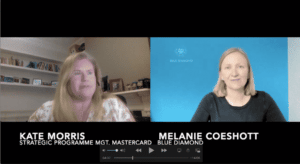
Kate Morris – I’m looking for the person that sparks the excitement, I want them to be hearing what’s going on around them and be involved. It’s that spark of curiosity. I want to hear them be a thought leader. I want to hear what they’re saying. When they’re feeling confident in what they’re doing, they’re going to rise above what they normally do. They’re going to start getting curious about what else they can do. They’re going to share those thoughts.
That inspires me, because I vibe off that kind of conversation and how they’re seeing the situation. Definitely know themselves, knowing their strengths, knowing how they interact with their team. Personal reflection. I know that it’s a big thing for certain people to ask for feedback, and it could be very confronting to certain people. I think it’s a really important thing to be able to openly ask for feedback all the time and get that muscle memory of asking people, “How’s it going? What else could we be doing?” Because that then gives you that time to be able to self-reflect, and have a look at, “Am I on the right path? Am I doing the right thing? What else can I do?” Those are the kinds of things that I look out for.

Keith Douglas – Another great question and certainly a very wide-ranging question.
There are things that I look for in individuals, not that necessarily mean that they get promoted or that they’re even better placed to be promoted. Your question highlights the key qualities that I look for in individuals. Frankly, I look for these because I’ve seen them in the past and I’ve seen how successful individuals with these traits can be, either within teams I’ve been a member of or teams that I’ve led.
- I’m looking for people who are decisive. And, by that, I don’t mean that they’re willing to make a decision, but they recognize when they need to make a decision or recommendation.
- I’m looking for people who are willing to share and share information, share knowledge, and share best practices. For me, sharing drives an individual’s ability to empower others. Empowerment is about ensuring others are equipped and learning and feel confident in doing their role.
- I’m looking for people to take risks, but to take sensible risks. That is not to be caught out on the pros and cons, but to try to make a decision based on the balance of information available to you. You won’t always get it right!
- I’m looking for people who are curious, who will go beyond the obvious question, go beyond their remit from time to time. To build out that better answer, that better solution, that more informed decision,
These are the kind of qualities I look for, and that I’ve seen over the twenty or so years I’ve been in the workforce, in people who’ve got on and advanced in their careers.
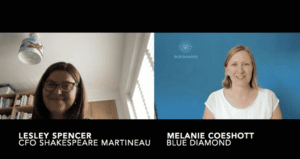
Lesley Spencer – Their ability to listen, to listen to their teams, and to understand their teams.
I look for people to adapt their style, to be flexible, and to be clear on what needs to be delivered. To be able to deliver things, but to do that in a way that actually brings people with them, that people are bought in, and they have a satisfied and fulfilled group of people working with them.
So, it’s not about them as individuals looking like they’re delivering everything themselves. It’s actually about their ability to work with their team and to bring the whole team forward. So, it’s very much about their people understanding and people management skills.
Technical skills are important, but very often you can train technical skills. It’s much more difficult to train that inherent ability to listen, understand and empathize with people.

Thanks for reading. Check out the other interviews in the Post Lockdown Leadership Review series.
Check out other Blue Diamond articles to help you take control of your work and life.

